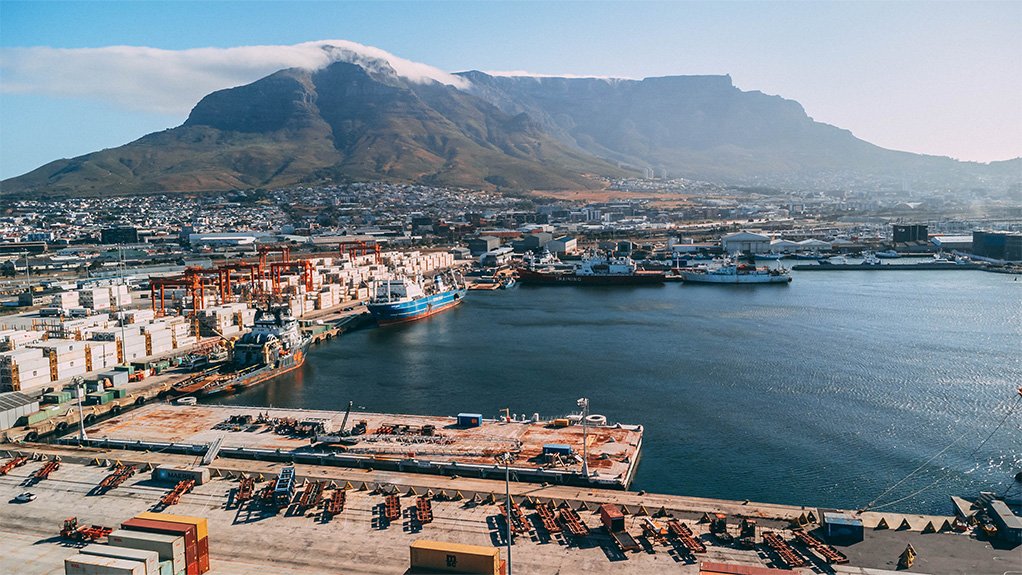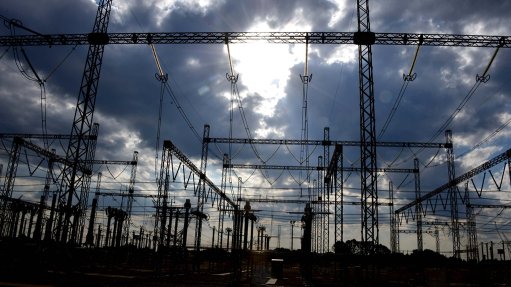Western Cape, Cape Town welcome move to seek private-sector investment in rail, port sectors
Western Cape premier Alan Winde says he welcomes the announcement on the weekend by Transport Minister Barbara Creecy to initiate a request for information (RFI) process for private-sector participation in South Africa’s rail and port sectors.
“This is good news for our economy…For far too long these critical logistics sectors have been ignored and allowed to fall into disrepair and dysfunction, to the detriment of South Africa’s economy.”
Winde says the Port of Cape Town and smaller ports in the Western Cape are essential to the provincial and national economies.
The Western Cape government, through its Growth For Jobs strategy, aims to triple exports to R450-billion and increase private-sector investment to 20% of the province’s GDP.
It believes the Western Cape’s agricultural exports, currently constituting 55% of South Africa’s primary agricultural exports, have the potential to create 22 900 new jobs in the region through a 5% increase in exports.
“To achieve this, we must have fully operational harbours to drive economic growth and job creation,” notes Winde.
On average, the Northern Cape to Saldanha corridor transported 50.85-million tons of iron-ore and 4.4-million tons of manganese between 2022 and 2023, adds Western Cape Mobility Minister Isaac Sileku.
“Therefore, this move will present immense opportunities for private investment in rail, which will drive efficiencies and spur on a much-needed modal shift from road to rail.
“We encourage stakeholders in the Western Cape and beyond to engage with the RFI process to help unlock the full potential of our rail and logistics network.”
Cape Town Also Pleased
Cape Town mayor Geordin Hill-Lewis has long lobbied for the Port of Cape Town to see some private-sector investment.
“We are relieved to see the Port of Cape Town’s inclusion in government’s testing of market appetite for private-sector involvement.
“The city has been making this case to national government for some time, and I am grateful to Minister Creecy for following through on her commitment.
“This is a positive step towards enabling the level of infrastructure investment and expertise needed to co-run the port successfully.”
According to the World Bank, Cape Town port is the least efficient in the world, adds Hill-Lewis, which he says acts as a handbrake on the regional economy.
“We need to urgently see private investment and management in the Cape Town port to release this handbrake and speed up job creation in Cape Town.
“There is huge potential for job-creating economic growth if we can establish our port as a regional shipment hub of choice, and turn its reputation around as one of the worst in the world for inefficiency.
“We are encouraged by government’s short deadline of August to enter into the formal procurement phase for private partners, and the Development Bank of Southern Africa’s involvement in setting up the coordinating unit to get private partnerships done,” notes Hill-Lewis.
“We must make sure these timelines are not delayed.”
Research from the Western Cape Department of Economic Development and Tourism indicates that private-sector participation at the Port of Cape Town could result in an additional R6-billion in exports, the creation of about 20 000 jobs, and income of more than R1.6-billion in additional tax revenue within five years.
City of Cape Town Economic Growth MMC James Vos says major infrastructure investment is needed to reduce the impact of wind on the city’s port operations.
“This has been a key concern expressed by business leaders during the city’s industry engagements.
“When the port is unable to operate sufficiently, exporters are forced to divert their goods to other ports in Durban, Gqeberha and elsewhere at huge costs.
“The private sector has the services and the expertise and has shown they are willing to assist as much as possible.
“We will be closely monitoring the RFI process, which we hope will lead to the full-scale joint running of the port with private partners, as well as a major infrastructure investment boost.”
Article Enquiry
Email Article
Save Article
Feedback
To advertise email advertising@creamermedia.co.za or click here
Press Office
Announcements
What's On
Subscribe to improve your user experience...
Option 1 (equivalent of R125 a month):
Receive a weekly copy of Creamer Media's Engineering News & Mining Weekly magazine
(print copy for those in South Africa and e-magazine for those outside of South Africa)
Receive daily email newsletters
Access to full search results
Access archive of magazine back copies
Access to Projects in Progress
Access to ONE Research Report of your choice in PDF format
Option 2 (equivalent of R375 a month):
All benefits from Option 1
PLUS
Access to Creamer Media's Research Channel Africa for ALL Research Reports, in PDF format, on various industrial and mining sectors
including Electricity; Water; Energy Transition; Hydrogen; Roads, Rail and Ports; Coal; Gold; Platinum; Battery Metals; etc.
Already a subscriber?
Forgotten your password?
Receive weekly copy of Creamer Media's Engineering News & Mining Weekly magazine (print copy for those in South Africa and e-magazine for those outside of South Africa)
➕
Recieve daily email newsletters
➕
Access to full search results
➕
Access archive of magazine back copies
➕
Access to Projects in Progress
➕
Access to ONE Research Report of your choice in PDF format
RESEARCH CHANNEL AFRICA
R4500 (equivalent of R375 a month)
SUBSCRIBEAll benefits from Option 1
➕
Access to Creamer Media's Research Channel Africa for ALL Research Reports on various industrial and mining sectors, in PDF format, including on:
Electricity
➕
Water
➕
Energy Transition
➕
Hydrogen
➕
Roads, Rail and Ports
➕
Coal
➕
Gold
➕
Platinum
➕
Battery Metals
➕
etc.
Receive all benefits from Option 1 or Option 2 delivered to numerous people at your company
➕
Multiple User names and Passwords for simultaneous log-ins
➕
Intranet integration access to all in your organisation



















